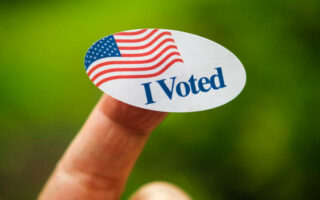Six Nebraska School Districts Getting Electric School Buses

(KFOR NEWS October 27, 2022) Six Nebraska school districts, including Raymond Central Public Schools, are schools around the country are receiving rebates for electric school buses from the Biden-Harris administration. $2.2 million is coming from the U.S. Environmental Protection Agency’s (EPA) Clean School Bus Program rebate competition out of President Biden’s Bipartisan Infrastructure Law.
Vice President Kamala Harris and EPA Administrator Michael S. Regan joined schoolchildren, district leaders, and community members in Seattle Wednesday to make the announcement and highlight how it will reduce greenhouse gas emissions, save schools money, and better protect children’s health.
“President Biden’s historic Bipartisan Infrastructure Law is accelerating our nation’s transition to electric and low-emission school buses while ensuring a brighter, healthier future for our children,” said EPA Administrator Michael S. Regan. “As many as 25 million children rely on the bus to get to school each day.”
“The announcement of nearly $2.2 million for Nebraska school districts to purchase six clean school buses could not come at a better time,” said EPA Region 7 Administrator Meg McCollister. “As EPA wraps up Children’s Health Month, this investment in electric school buses represents the Biden-Harris administration’s commitment to the health of our children and to reducing air pollution and greenhouse gases in our communities.”
Nebraska school districts receiving clean school bus funding through today’s announcement include:
- Hay Springs Public Schools – One school bus for $305,000
- Hershey Public Schools – One school bus for $395,000
- McCool Junction Public Schools – One school bus for $395,000
- Raymond Central Public Schools – One school bus for $395,000
- Southern School District 1 – One school bus for $395,000
- Summerland Public Schools – One school bus for $395,000
In May, EPA announced the availability of $500 million for its Clean School Bus Program. Given overwhelming demand from school districts across the country, including in low-income communities, tribal nations, and territories, EPA nearly doubled the amount of funding that will be awarded to $965 million. The rebate application period closed in August with an outstanding response from school districts seeking to purchase electric and low-emission school buses across the country.
At this time, the Agency has selected 389 applications totaling $913 million to support the purchase of 2,463 buses, 95% of which will be electric. EPA will distribute awards to school districts in all 50 states, Washington D.C., along with several federally recognized tribes and U.S. territories. School districts identified as priority areas serving low-income, rural, and/or tribal students make up 99% of the projects that were selected. More applications are under review, and the Agency plans to select more to reach the full $965 million in the coming weeks.
Those school districts who received an award can now proceed with purchasing new buses and eligible infrastructure. Selectees will need to submit Payment Request Forms with purchase orders demonstrating they have ordered new buses and eligible infrastructure. EPA is also partnering with the U.S. Department of Energy and U.S. Department of Transportation to provide school districts with robust technical assistance to ensure effective implementation.
These awards are the first $1 billion of a five-year, $5 billion program created by President Biden’s Bipartisan Infrastructure Law. EPA is also designing the next rounds of program funding to launch in the coming months, which will include an ambitious grant competition. Through future rounds of funding, EPA will make available another $1 billion for clean school buses in fiscal year 2023. EPA encourages school districts not selected in the first round of rebates – and those that did not apply this funding cycle – to participate in future rounds.
READ MORE: University Of Florida Faculty Senate Considers No Confidence Vote On Ben Sasse


